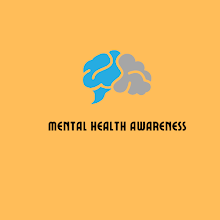10 Tips to Boost Your Mental Health
Our Mental Health includes all aspects of our physical, psychological, emotional, and societal well-being. It affects our attitudes, feelings, and actions. Additionally, it influences our decision-making, interpersonal interactions, and stress response. Every stage of existence, from childhood and adolescence to adulthood is crucial for maintaining mental wellness.
Mental health conditions can have a long-term effect on your thoughts, feelings, and behavior.
Factors.
Many factors contribute to mental health. Include,
- Biological components, including DNA or the chemistry of the brain.
- Experiences with trauma or abuse in life.
- A history of mental illness in the family.
Early Signs.
- Eating too much or too little, or both.
- Withdrawing from people and routine tasks.
- Not having much energy.
- Numbness or a sense that nothing matters.
- Experiencing strange pains and aches.
- Being despondent or feeling powerless.
- Consuming drugs, alcohol, or smoking more frequently than usual.
- Feeling uncharacteristically uncertain, forgetful, tense, or afraid.
- Screaming or arguing with relatives or friends.
- Enduring extreme mood swings that complicate partnerships.
- Having uncontrollable recollections and ideas in your brain.
- Hearing voices or believing things that are not true.
- Considering hurting yourself or someone else.
- The inability to carry out regular activities like caring for your children or traveling to work or school.
Tips Used to Grow Mental Capability | Boost Your Mental Health.
Your overall psychological well-being is referred to as your "mental health". It involves your self-esteem, the caliber of your relationships, and your capacity for emotion regulation and problem-solving.
Anybody can experience mental or emotional health problems, and many people do throughout their lives. One in five Canadians struggles with their mental health or drug use. These suggestions can improve your disposition, make you more robust, and help you live more fully.
Prioritize face-to-face Interactions and Other Forms of Social Interaction.
Although phone calls and social media have their uses, nothing beats the stress-relieving and mood-enhancing benefits of spending quality face-to-face time with others, particularly those you love and who energize you.
Keep Moving.
Being physically engaged benefits the brain just as much as the body. Regular physical action or exercise can significantly improve your mental and emotional well-being, reduce stress, enhance memory, and enhance sleep.
Speak with Someone.
Speak to a welcoming person. One of the best ways to calm your nervous system and alleviate stress is to talk about your worries, stresses, or concerns with a caring person.
Invoke your Emotions.
Do you find it relaxing to listen to upbeat music? Squeezing a tension ball—does it make you feel more grounded? What about going for a stroll through the woods and taking in the sights and noises of the trees? Everyone reacts to sensory input slightly differently, so try various things to see what suits you the best.
Start a Meditation Routine.
Deep breathing, yoga, mindfulness, and meditation can all help lower general stress levels.
Prioritize Downtime and Reflection.
We're all capable of blaming being "too busy" to relax, but downtime is essential for our emotional and mental well-being. As you go about your day, take some time to unwind, reflect, and focus on the good things, even the little things. If you can, put them in writing because it's simple to forget. If you need to lift your mood, think about them afterward.
Eat a Diet that is Good for the Brain to Promote Mental Health.
Fatty fish high in omega-3s, nuts (walnuts, almonds, cashews, and peanuts), avocados, beans, leafy greens (spinach, kale, and Brussels sprouts), and fresh fruit, such as blueberries, are foods that can support your happiness.
Get Enough Slumber.
More so than you might imagine. The best method for our bodies and minds to regenerate is through sleep. Take a break from screen stimulation in the hours before bedtime to improve your quality of sleep. This includes time spent on TV, phones, tablets, and laptops. Instead, think about reading or calming music.
Look for Significance and Purpose.
Finding meaning in your day is important for good mental health, though this will vary depending on the individual. Consider one of the three options:
- Work at something that makes you feel valuable.
- Spend valuable time and money on your relationships with the people who matter to you.
- Being a volunteer can improve your life and make you happy.
- Taking care of others, which can be both difficult and gratifying,
- Consider performing one kind of act or move per day.
If Necessary, Seek Help.
There are numerous programs and resources available to you if you or a loved one requires support.

.jpg)
.jpg)

%20(1).png)



0 Comments